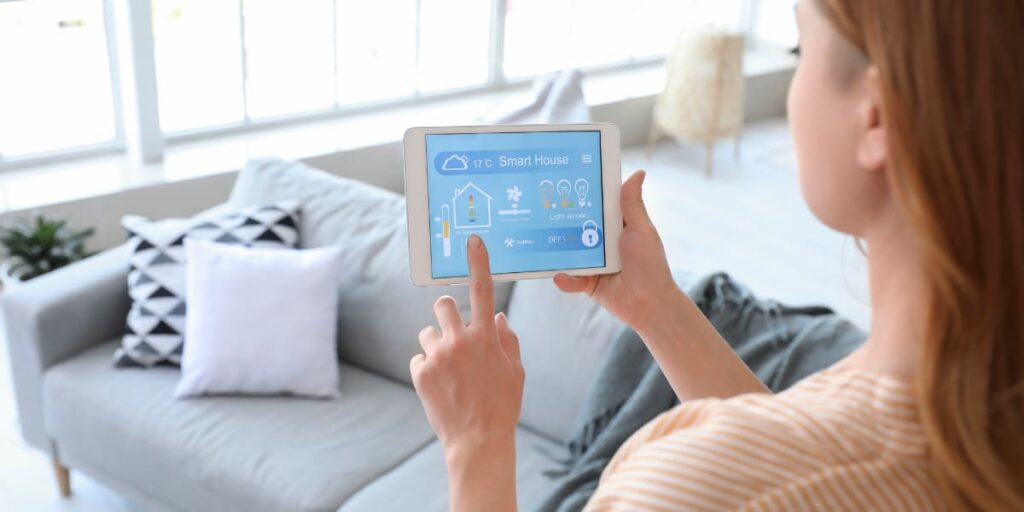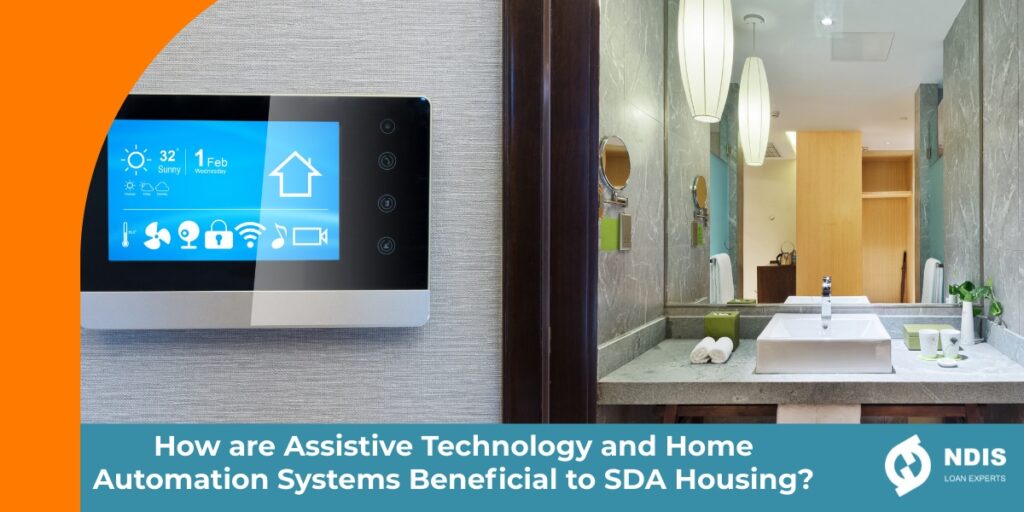Customising specialist disability accommodation (SDA) properties with assistive technology can not only improve the lives of tenants with unique needs, but also reduce the chance of rental vacancy for landlords, creating a win-win situation.
What is assistive technology?
Assistive technology (AT) refers to smart home devices and equipment that help people with disability to do tasks they otherwise couldn’t perform on their own.
These smart devices can range from simple tools, like can openers, to complex systems, like voice-activated smart home automation systems. Overall, AT is designed to offer a better quality of life for people with disability by increasing their independence, safety, and convenience.
Reducing vacancy risk with assistive technology in SDA housing
Installing and customising SDA housing with assistive technology can lead to a reduced vacancy risk. When tenants love their home, they’re more likely to stay. This can lead to longer tenancies and a more stable rental income for landlords.
Overall, incorporating assistive technology into SDA housing can be a win-win situation for both landlords and tenants, leading to a more stable and fulfilling living experience for tenants and a more profitable investment for landlords.
Types of assistive technology
There are various types of assistive technology that can be used in SDA housing to support tenants. Some examples include:
Environmental controls
Environmental controls are devices that allow tenants to control their surroundings. These may include voice-activated systems that can turn lights on and off, adjust the temperature, or open and close doors. Environmental controls can be especially useful for tenants who have limited mobility or difficulty reaching objects — and can even help reduce energy costs.
Safety
Safety technologies and a smart home system for SDA housing may include security systems, security cameras, alerting reminder systems, gas and electricity automatic shutoff systems, water main automatic shutoff systems, and smart smoke detectors.
Entertainment
Entertainment technologies for SDA housing may include smart TVs, smart audio systems, and white noise control systems. This technology means tenants can access various streaming services and other content, play music or other audio throughout their home, and relax and sleep more soundly with ambient noise.
Other examples of assistive technology for SDA housing may include automated track hoist facilities, smart appliances (including kitchen appliances and cleaning appliances), smart furnishings, and home backup generators.

NDIS Assistive Technology, Home Modifications and Consumables Code Guide
The Assistive Technology, Home Modifications and Consumables Code Guide lists the most commonly used supports. It is not a comprehensive list of all supports that may be provided as reasonable and necessary under the NDIS.
Benefits of Assistive Technology for SDA Housing Tenants
Increased independence and confidence
Assistive technology can help tenants perform everyday tasks they may not otherwise be able to do on their own. With the ability to make choices and do simple things themselves, tenants can enjoy feeling empowered with increased independence and a sense of confidence.
Improved safety
By incorporating safety technologies into SDA housing, landlords can provide tenants with greater peace of mind and reduce the risk of accidents or emergencies. For instance, installing smart smoke detectors can detect smoke and alert tenants of a potential fire, even when they are not at home.
Greater comfort
Customising a home with AT to meet a tenants unique needs can make their space a comfortable place to live.
For example, environmental controls such as automated air conditioning or a smart thermostat can help tenants control the temperature of their homes, ensuring that they are comfortable at all times. Smart appliances such as an automated coffee maker or a smart oven can make daily tasks more convenient, increasing tenants’ overall enjoyment and satisfaction in their home.
Reduced costs
Assistive technology can also help reduce costs associated with care. When tenants are able to move around their homes more easily and independently to perform day-to-day activities, it reduces the need for a caregiver. This can lead to lower care costs and increase the tenant’s sense of independence.
Increased privacy
With AT, tenants can live their lives more freely and pursue their interests and hobbies without feeling like they are constantly in need of assistance or under observation. Increased privacy can lead to greater comfort and peace of mind for tenants, which can have a positive impact on their overall well-being.
Enhanced quality of life
Overall, incorporating assistive technology into SDA housing can enhance the quality of life for tenants with disability. By providing greater independence, safety, control over the environment and comfort, assistive technology can help tenants live fuller, happier and more satisfying lives.
If you have questions about customising a SDA property with assistive technology, reach out to our team today.


